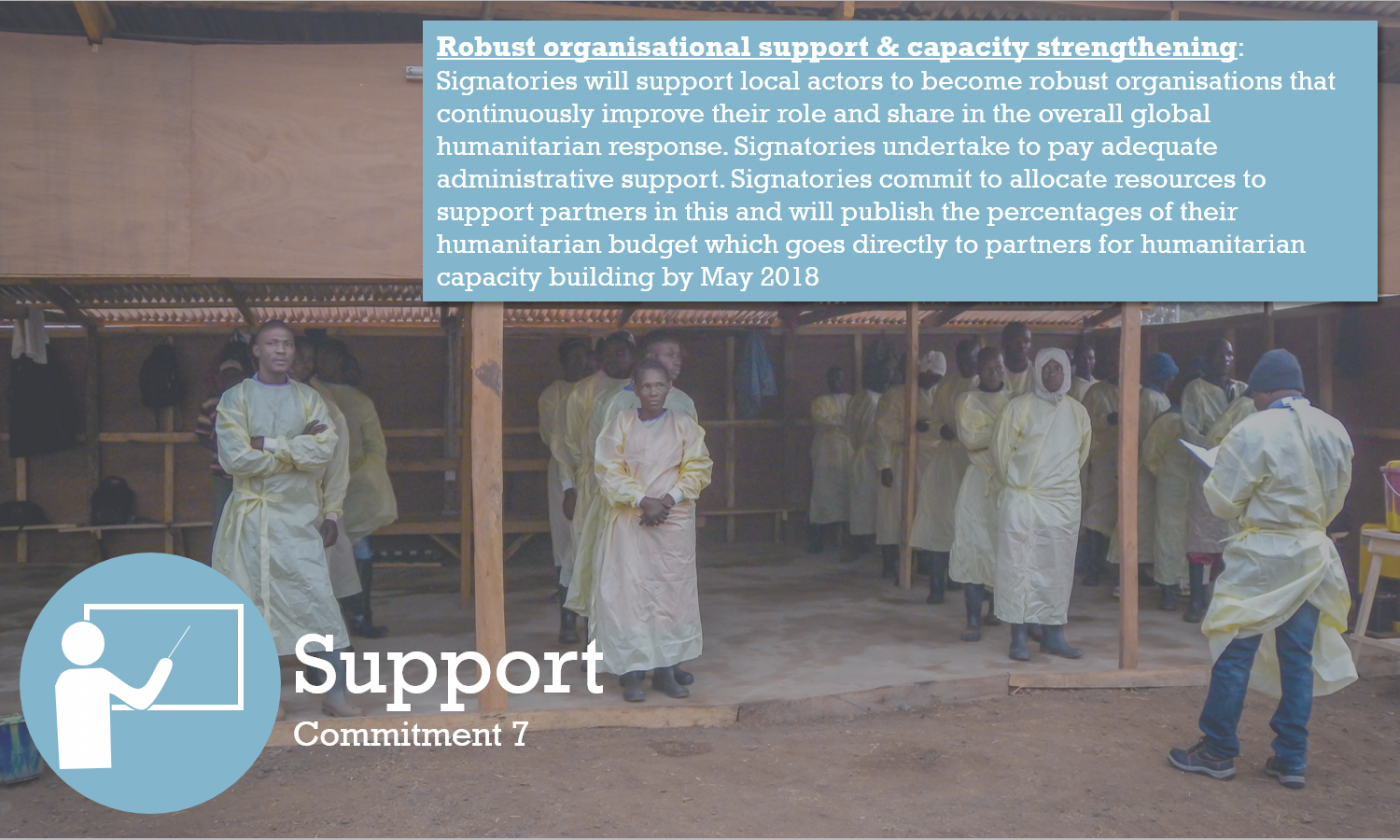“Change or die” was the advice given to international NGOs in the recently published voluminous report The Future of Aid – INGOs in 2030. If NGOs want to continue their assistance, they will have to take into consideration the essential role of local aid organizations in the countries in question. Local NGOs have better access to the people in need of help, better physical access to areas where they are rooted, and better cultural access because they speak the victims’ language, understand their needs, and can channel their aid accordingly. In vulnerable areas in particular, victims and their local leaders trust organizations familiar to them more than help ‘from elsewhere’. Moreover, local NGOs don’t leave once the first problems have been solved; created by the people themselves, they are rooted in society and are there to stay.
Can aid be neutral?
It’s important that local organizations are neutral, impartial, and independent. But this can prove challenging. How do you remain neutral in a conflict in which you yourself and your own community are involved? How can you remain resistant to the importance of designated funds and parties whose financial support you need to continue working?
These sorts of conflict situations demand a partnership between local and international organizations. A partnership based on balanced, long-term collaboration. And we should be aware that international NGOs too can be accused of being biased, as was evidenced in post-war Afghanistan. Local organizations there identified the entire Western presence, including international aid organizations, with the interests of the West and Karzai.
The humanitarian system of financing should also be designed more honestly. Governments, the biggest financial contributors to humanitarian aid, channel 64% of their money via UN organizations such as WFP and UNHCR. NGOs receive 19% of all of the available funds. Three-fourths of this amount goes to international – northern – NGOs like MSF, Save the Children and Oxfam; national and local NGOs together receive only a paltry 2.1% in direct funding (Figures 2015).
A bigger voice
Organizations in the South justifiably want a bigger voice in how aid to their own communities is given. More balanced relationships and partnerships as well as more recognition for the role of local NGOs in allocating funds and making decisions are needed to truly help the growing group of people who are victims of disasters and conflicts. So it’s important that, as a sector, we strive to share knowledge, power, and means in order to create a more honest, effective, and inclusive humanitarian system. Fortunately, there is increasing attention to this issue, partly thanks to the agreements made during the World Humanitarian Summit 2016 and recorded in the Grand Bargain. There are also international lobby initiatives such as Charter4Change, whose second annual meeting was held October 10 and 11 in The Hague. With 29 signatories, a significant part ACT Alliance members, Charter4Change wants to realize localization. This week it was agreed upon that local NGOs get an active role to hold the signatories accountable for the commitments they signed up to.
Reflecting on our own role
A balanced partnership means more than simply giving a percentage of the funds to local actors. It entails a new way of thinking. It means that, as an aid organization, we must dare to reflect on our own role and examine what we can do to become better partners with local organizations. Rather than using them as instrumental subcontractors, we should help them to become fully fledged, independent actors in society as we gradually make ourselves superfluous. ICCO and Kerk in Actie are emphasizing this approach via their international network ACT Alliance. On October 12, ACT Alliance aid workers met for this self-reflection and examination in The Hague in an effort to make localization a reality. We agreed to increase the Rapid Response Fund and to work more and more in consortia.
Local aid organizations in Bangladesh and Nepal are working day and night to provide relief to the victims of the floods, also if there is no media attention anymore. They deserve our support. Patterns are hard to break. After a disaster, we tend to fall back into our familiar routines. But we need to choose a different path: better local preparation, capacity-building, and real partnerships in which local actors play an increasingly bigger role.
Marinus Verweij is chair of the Board of Directors for ICCO, based in Utrecht, Netherlands.
This commentary originally appeared on the ICCO website on 13 October, 2017.

